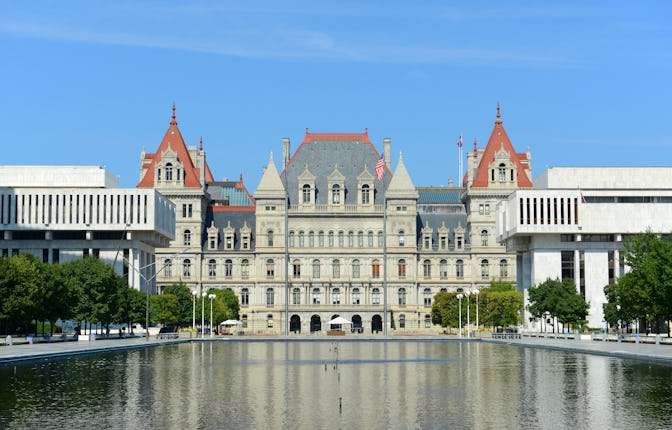New York State Senate passes bill limiting use of song lyrics as evidence
"Creative expression" will no longer be allowed as sole evidence, unless it can be proven as literal.

The New York State Senate has passed a bill that would drastically limit the use of song lyrics in criminal court as evidence. Senate Bill S7527 would not completely outlaw presenting lyrics to a jury, but it would require that evidence labeled as “creative expression” be proven to have been literal rather than figurative or fictional. To become law, the bill, which is sponsored by Senators Jamaal Bailey and Brad Hoylman, must now also pass the State Assembly in a companion bill sponsored by Assembly member Catalina Cruz.
The political move comes after rappers Young Thug and Gunna were recently arrested in Georgia on RICO charges, with a large portion of Young Thug’s catalog being cited as evidence, with lyrics being labeled an “overt act in the furtherance of the conspiracy.” It’s hard to not see using rap lyrics against rappers criminally as just another way our criminal justice system is flagrantly racist. Country songs from white men talk about similar topics, but aren’t used putatively. As Will Dukes wrote for Mic, “For some time now, hip-hop has been taught at Ivy League institutions. It has been the subject of whole exhibitions at venerable museums worldwide. Yet there's still this notion that it’s somehow responsible for violence.”
In the 2013 case Dawson v. Delaware, the Supreme Court ruled that it is unconstitutional to use protected speech as evidence if that speech is irrelevant to the case — a ruling that will likely be used to help get the law passed. A letter signed by Jay-Z, Meek Mill, Killer Mike, Fat Joe, and Robin Thicke, among others, showed public support for the legislation stating, “This reform is urgently needed. This tactic effectively denies rap music the status of art and, in the process, gives prosecutors a dangerous advantage in the courtroom: by presenting rap lyrics as rhymed confessions of illegal behavior, they are often able to obtain convictions even when other evidence is lacking.”
Hopefully, New York’s legislation becomes law and prompts other states to follow suit — creativity shouldn’t lead to criminalization.